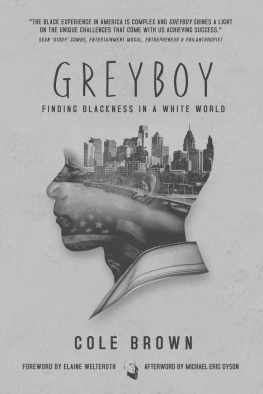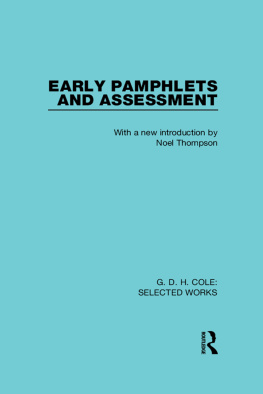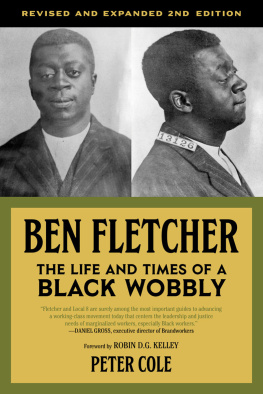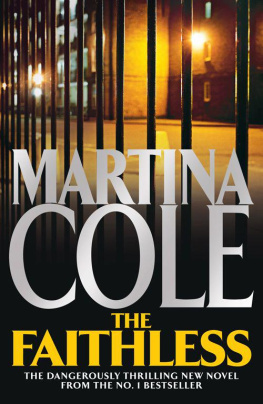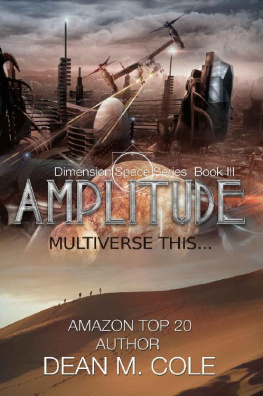Cole Brown - Greyboy
Here you can read online Cole Brown - Greyboy full text of the book (entire story) in english for free. Download pdf and epub, get meaning, cover and reviews about this ebook. year: 2020, publisher: Skyhorse, genre: Home and family. Description of the work, (preface) as well as reviews are available. Best literature library LitArk.com created for fans of good reading and offers a wide selection of genres:
Romance novel
Science fiction
Adventure
Detective
Science
History
Home and family
Prose
Art
Politics
Computer
Non-fiction
Religion
Business
Children
Humor
Choose a favorite category and find really read worthwhile books. Enjoy immersion in the world of imagination, feel the emotions of the characters or learn something new for yourself, make an fascinating discovery.
- Book:Greyboy
- Author:
- Publisher:Skyhorse
- Genre:
- Year:2020
- Rating:4 / 5
- Favourites:Add to favourites
- Your mark:
- 80
- 1
- 2
- 3
- 4
- 5
Greyboy: summary, description and annotation
We offer to read an annotation, description, summary or preface (depends on what the author of the book "Greyboy" wrote himself). If you haven't found the necessary information about the book — write in the comments, we will try to find it.
Greyboy — read online for free the complete book (whole text) full work
Below is the text of the book, divided by pages. System saving the place of the last page read, allows you to conveniently read the book "Greyboy" online for free, without having to search again every time where you left off. Put a bookmark, and you can go to the page where you finished reading at any time.
Font size:
Interval:
Bookmark:


Copyright 2020 by Cole Brown
Foreword copyright 2020 by Elaine Welteroth
Afterword copyright 2020 by Michael Eric Dyson
All rights reserved. No part of this book may be reproduced in any manner without the express written consent of the publisher, except in the case of brief excerpts in critical reviews or articles. All inquiries should be addressed to Arcade Publishing, 307 West 36th Street, 11th Floor, New York, NY 10018.
First Edition
Arcade Publishing books may be purchased in bulk at special discounts for sales promotion, corporate gifts, fund-raising, or educational purposes. Special editions can also be created to specifications. For details, contact the Special Sales Department, Arcade Publishing, 307 West 36th Street, 11th Floor, New York, NY 10018 or .
Arcade Publishing is a registered trademark of
Skyhorse Publishing, Inc., a Delaware corporation.
Visit our website at www.arcadepub.com.
10 9 8 7 6 5 4 3 2 1
Library of Congress Cataloging-in-Publication Data is available on file.
Cover design by Lineage Digital
Jacket design by Kai Texel
Illustrations by Natalie Johnson
Print ISBN: 978-1-5107-6188-9
Ebook ISBN: 978-1-5107-6189-6
Printed in the United States of America
C ONTENTS
F OREWORD
by Elaine Welteroth
The ache for home lives in all of us, the safe place where we can go as we are and not be questioned.
Maya Angelou, All Gods Children Need Traveling Shoes
Y OU ARENT LIKE MOST Black girls. I can still feel my veins fill with adrenaline and my body tense up, preparing itself for the inevitable blow that would come next. Youre just, like, so... articulate. There it was. The familiar backhanded compliment, like an unwanted gift youve received too many times before. Under different circumstances these could be reflexively classified as Fighting Words, demanding correction through confrontation. But in this context, survival instincts beg you to reconsider.
There I was, a college student working two jobs to put myself through school, peering into the oblivious blue eyes of my employer whose willful ignorance blinded her from seeing me and my intelligence as part of a broader Black community, rich with achievement and, yes, #Blackexcellence. Yet, the painful force of her unexamined prejudice was equaled only by the knowledge that fighting it would be futileand even more grim, itd likely leave me unemployed.
We were folding jeans inside a retail store at Arden Fair Mall in Sacramentoa small town that projected itself onto freeway billboards as the proudly diverse metropolitan capital of California. And yet it was the place I witnessed more narrow-mindedness than any other, before or since. Not just from white people who were unacquainted with the notion that Black people indeed spoke proper English, but also from Black people who did not always immediately embrace those who did (for reasons rooted in long, menacing histories and divisive tactics designed by oppressors to form deep fissures within the communities of the oppressed).
It is in these jarring moments that our reality seems to divide itself into two, like those split-screen scenes from nineties TV shows. There is the reaction you performthe diplomatic response they can see and hear and digest without offense. One that allows you to keep your job and, by sheer force of will, eventually becomes just a foggy recollection, a bad dream you try hard to forget over time. Then, there is the internal monologue, replete with the clever clapbacks your conscious mind knew better than to reach for in the heat of the moment, that you will later feed yourself in the mirror and share freely with friends in safe spaces fit for unpacking collective rage.
But beyond the bravado and beneath the performative diplomacy, there is a different voice altogether welling up from the deep chasms between who we are and how we are seen. The voice hidden behind the languages we learn to speak in order to navigate spaces that insist on seeing only parts of us; the parts made most visible through the medias gravely limited projections of us.
This book is written from that voice. The voice that is at once questioning, analyzing, processing, and protesting the world around itall while earnestly asserting its rightful place within it.
In Greyboy , Cole Brown recounts with poignancy not only his search for an integrated Black identity to inhabit, but he sets out on a literary quest to expand the definition of Blackness altogether by teasing out the nuances of existing in-between the identities he and those in his world have been assigned. The essays before you offer beautifully constructed windows into the world of what it means to be, as he describes himself, a token in the age of Trump.
As a reader, I found myself smiling and nodding, feeling in my bones the relentless urgency of his mothers warnings each time he leaves her home. I rode the waves of self-betrayal when his belonging at the Black Table was at odds with his similarity to the preppy white kids he grew up withuntil, of course, life painfully reveals the lie of sameness we are sold. I laughed along as he fondly recounted the great loves of his life, remembering the days of my own First Love and how hard my young heart had fallen.
As a Black writer all too familiar with occupying white spaces, I presume one reason I was trusted to write this message to you is that in my book, More Than Enough: Claiming Space For Who You AreNo Matter What They Say , I, too, reflect on growing up in a near-constant state of whiteness only to enter adulthood grappling with what it means to find myself more often than not as The Only in room. The token Black friend. The token Black body in the office. Or, as the great Shonda Rhimes cleverly coined us across industry: F.O.D.s (First. Only. Different.).
It is hard to miss the many parallels between our experiences. Though in as many ways as our stories are similar, they diverge primarily on the fundamental characteristics of gender and of a certain socioeconomic privilege. However, even in these seemingly narrow divides between two otherwise similar millennials lies a multitude of nuanced experiences that defy any notion of a monolithic Black identity. As one of the many titles he considered for this book suggests, Black Boy, Silver Spoon (which I happened to like), Cole comes from a world of privilege that I wasnt exposed to until well after college. A biracial Black girl who grew up in a working-class white town in California, I did not summer on Marthas Vineyard, nor did I have access to private school education, or the elite Jack and Jill circles he was born into. And yet, I relate deeply to the in-betweenness that Cole writes about.
I have always believed in and championed young voices for their ability to convey something about the world that we might not otherwise see. While his adult life is only just beginning, Coles writings chart a specific kind of coming of age that explores the arc of coming into ones consciousness and finding a voice of ones own. A voice that, for the first time, strives to articulate itself without compromise, while embracing all the competing parts that make up its whole. This is a story of one young mans journey to develop and define a strong, affirmed Black identity in a world that wanted to define that for him. I, for one, find that to be a very brave and important act.
A N OTE
T O THIS DAY , I wrestle with what to call the thing youre holding, how best to convey what it contains. It isnt a memoir, though its often about me. It isnt a study, though its often about others as well. It isnt an anthology, though it has much of that same stitched-together, patchwork appearance. It isnt academic, objective, or authoritative.
Next pageFont size:
Interval:
Bookmark:
Similar books «Greyboy»
Look at similar books to Greyboy. We have selected literature similar in name and meaning in the hope of providing readers with more options to find new, interesting, not yet read works.
Discussion, reviews of the book Greyboy and just readers' own opinions. Leave your comments, write what you think about the work, its meaning or the main characters. Specify what exactly you liked and what you didn't like, and why you think so.

